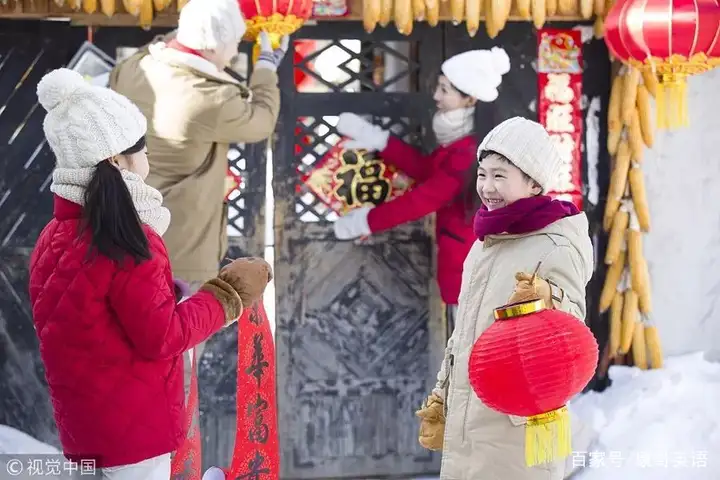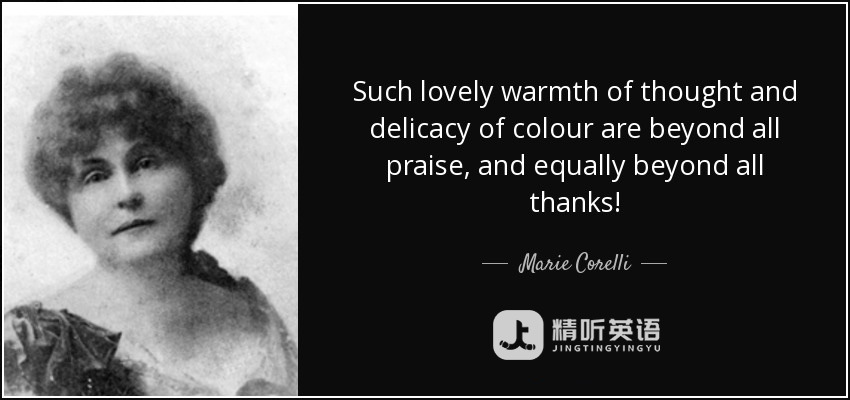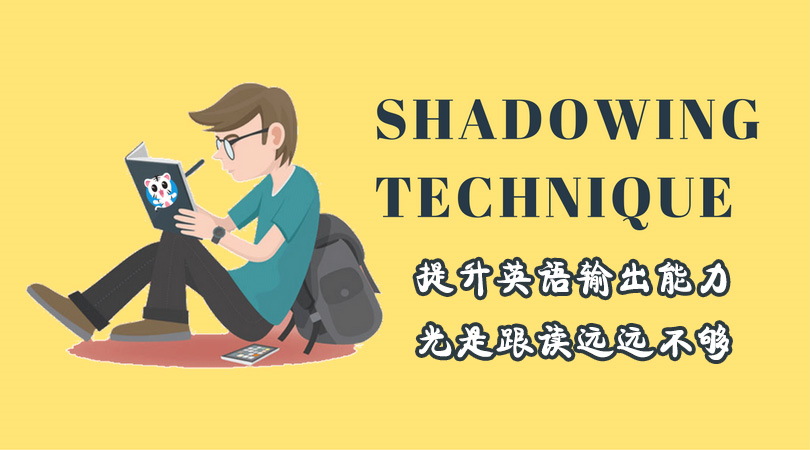
学英语的初衷和成就感的在哪里?把中国的深远厚重的传统文化能够讲出个“所以然”来,也很重要的一环。你的博学一定能够得到外国人的尊重。
最近在重翻《瓦尔登湖》,发现西方最为著名的学者亨利·戴维·梭罗的文章里包含着很多孟子、老子、庄子的思想,他的思想厚度在某种程度上得益于中国的圣人,但是一个世纪过去了,难道我们中国没有一个人能够用英文讲好中国的智慧?
还有美国经济学家及营销专家米尔顿·科特勒早在20年前,通过《慧眼看中国》一书就提示了中国人所面临的尴尬,很多时候,我们中国人用着自己国家生产出来的产品,而制造商却只能眼睁睁地看着大部分的利润拱手让给了别人。米尔顿·科特勒在《慧眼看中国》一书指出:China needs a state marketing policy《中国需要国家营销战略》,但时至今日,我们的民族品牌除了福耀玻璃和几家3C数码公司,在国际上并没有多大动静。
The original aspiration and purpose of learning English should include circulating the Profound Chinese Value and unveiling the context of Authentic Chinese Culture to the world. As soon as we inherit sage advice from our omniscient ancestors and build up the nessesary skills to perpetuate and disseminate their wisdom, we gonna be well-respested by well-educated westerns.
The Preliminary Eve:serving as a prelude of the lunar Chinese new year.
It is a time when Chinese people offer sacrifices to the Kitchen God. Nowadays, most families just cook delicious food for themselves to enjoy. In some parts of the country, people also clean their homes thoroughly, including their clothes and bedclothes. People also maintain a tradition of cutting their hair on this day.
After Preliminary Eve, people often start preparing for the Chinese New Year. This is called “seeing the New Year in.” Paper cuttings of Chinese characters and gods will be hung on doors and windows, and everybody will stock up on their New Year’s goods. The festive atmosphere will begin from today.
中国的上层建筑怎么可能意味不到这个问题,但仍然置若罔闻、独断专行地选择了愚弄百姓。这种制度不改变,我们绝大部分人的子孙后代没有前途可言。
Traditional Activities for Chinese little new year:
Sacrifices to the Kitchen God
When little new year rolls around the Jade Emperor decides accordingly to the family’s yearly behavior to decide if he will reward or punish them. The Kitchen God serves as the messenger to report back to the Jade Emperor. Folks burn a paper image of the god in order to dispatch his spirit into heaven to do so and afterwards they put a new image next to the stove to welcome him back in order to oversee and protect the family again. While that happens, sacrifices are made to him in hopes to seal his mouth and leading him to only saying good things about the family.[4]
House Cleaning
House cleaning happens between the eighth day of the last lunar month (when Laba Festival happens) and Little New Year, Chinese beliefs call for folks to clean themselves and their housing since it is said that ghosts and spirits must either return to Heaven or stay on Earth. So to ensure that they leave, people clean every corner of they home. During this time, the house is also cleaned with the goal of making it anti-virus so the new year does not start with a sickness.
Eating Guandong Candy
Guandong candy is a treat made of glutinous millet and sprouted wheat. It is said that if your mouth was full of candy you wouldn’t be able to bad-mouth others.[6]
Pasting Paper Cuts to The Window
Red envelopes packed with money inside with the word 福 on them.
Similarly to the kitchen god picture, the old paper cuts are taken down and then new ones are put up and it is an indication to the beginning of spring. The paper cuts are usually of the word 福 indicating the peoples wish for a lucky year. The cut is also usually up side down since in Chinese up side downs sounds like “to arrive” so they are wishing for luck to arrive.[5]
Spring Festival Preparation
The preparation process has to be all done in advance. There is a wide variety to things to do and prepare with most of them revolving around the word “new”, often new clothing. Things like firecrackers are bought to use as celebration and a popular item is the red envelopes since it is the peoples belief for the young ones to “respect the elderly” and in return the elderly “love the youth”, usually it is money inside the red envelopes.
小年习俗相关英语表达:
1.扫尘 Sweeping the Dust
2.灶王爷 The Kitchen God
3.写对联 Write couplets
4.剪窗花 Paper-cut for window
5.洗浴理发 Bath and Haircut
6.举办婚事 Marriage held
祭灶
小年,也被叫做灶王节(Kitchen God Festival),和其他不近人间烟火的神祇不同,灶王爷掌管的范围就是百姓生活日常的灶台周边。祭灶这一仪式也反映了灶王爷亲民的可爱形象。
Chinese families believe that the Kitchen God returns to Heaven on this day to report on the activities of every household over the past year to his superior, the Jade Emperor, who will either praise or punish the family based on the Kitchen God’s report. Families often offer sweet foods like candy in order to “bribe” the Kitchen God into saying good things about the family.
中国家庭相信这一天灶王爷要上天向玉皇大帝禀报这家人的善恶,让玉皇大帝赏罚。因此人们在灶王像前的桌案上供放糖果等祭品来“贿赂”灶王爷。
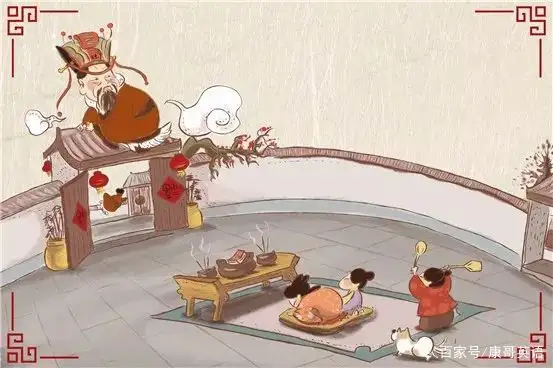
俗话说“二十三,糖瓜粘”,献给灶王爷的祭品有很多,其中最受孩子们欢迎的就是关东糖了。
糖瓜的主要原料是麦芽糖,还要掺上一些黄米,熬制而成。它的粘性很大,如果拉伸成长条,就叫“关东糖”;搓成扁圆形状,就叫“糖瓜”。冬天可以把糖瓜放在屋外。因为天气严寒,糖瓜凝固得很坚实,但里边又有些微小的气泡,吃起来凉凉的,脆甜香酥,别有风味。
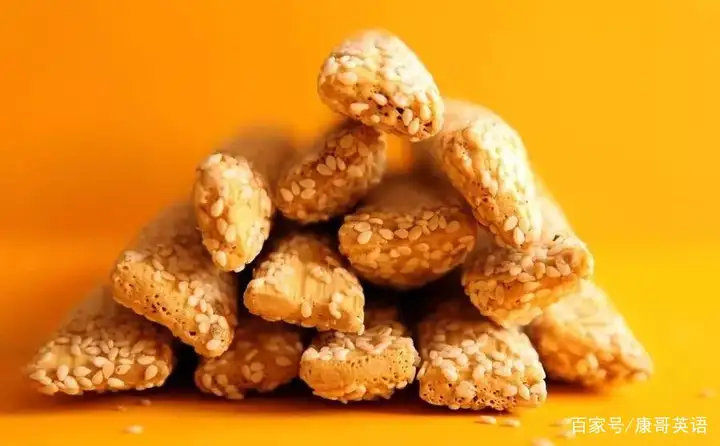
甜甜的关东糖灶王爷也爱吃
祭灶的过程中,还要烧掉灶王像,灶王爷随着青烟飞上天界:
One of the most distinctive traditions of the Little New Year is the burning of a paper image of the Kitchen God, dispatching the god’s spirit to Heaven to report on the family’s conduct over the past year. The Kitchen God is then welcomed back to the home through the pasting of a new paper image of him beside the stove.
小年最独特的一个传统就是焚烧灶王爷的画像,以此派遣灶王爷的灵到天界去报告过去一年这个家庭的行为。然后在灶旁贴一张他的新画像来欢迎他回家。
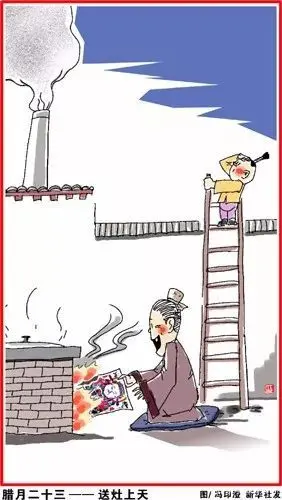
扫除
小年祭灶时也有打扫居所以辞旧迎新的习俗。
In Chinese, the character for “dust” is a homophone of the character for “the old”. By giving the house a thorough cleanse on the day, Chinese people believe that this would rid them of their poverty and bad luck from the previous year, so as to welcome a prosperous new year.
在中国,“尘土”的“尘”这个汉字与“陈旧”的“陈”同音。中国人相信,当天通过彻底地清扫房子,可以让他们摆脱过去一年的贫穷和霉运,迎来一个繁荣的新年。
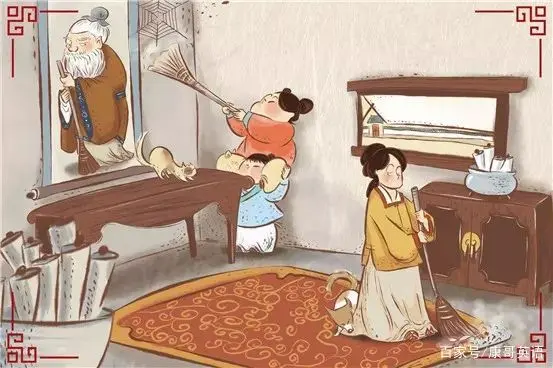
洗澡、剪头发
像打扫居所一样,洗澡、剪头发同样寓意着去除尘垢辞旧迎新。
The ancient Chinese believed that a haircut in the first month of the Lunar New Year would bring bad luck. People usually wait until the second lunar month to have their hair cut again… In order to fit into the new clothes for the festival, a haircut is highly recommended beforehand.
中国古人相信正月剪头会带来霉运,所以人们常等到农历二月才再次剪发……因此,为了配合春节穿的新衣服,提前理发是非常推荐的。
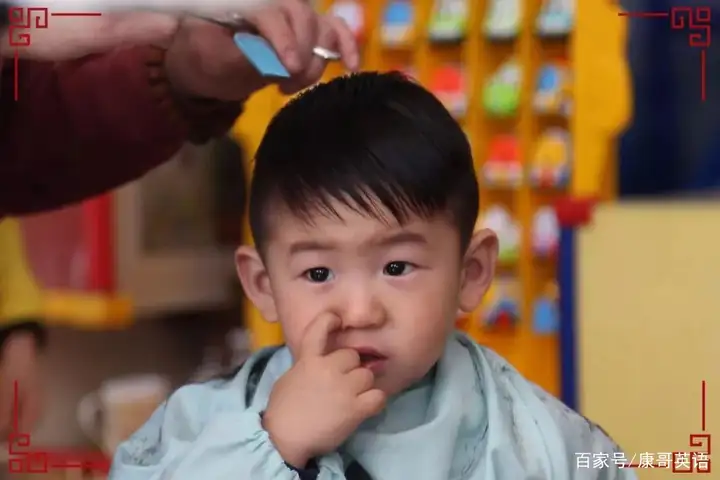
贴窗花、春联
In the Little New Year, old couplets and paper-cuts from the previous Spring Festival are taken down, and new window decorations, New Year’s posters, and auspicious decorations are pasted up.
在小年的时候,上个春节时贴的春联和窗花被摘了下来,新的窗花、年画和喜庆的装饰品会被张贴起来。
